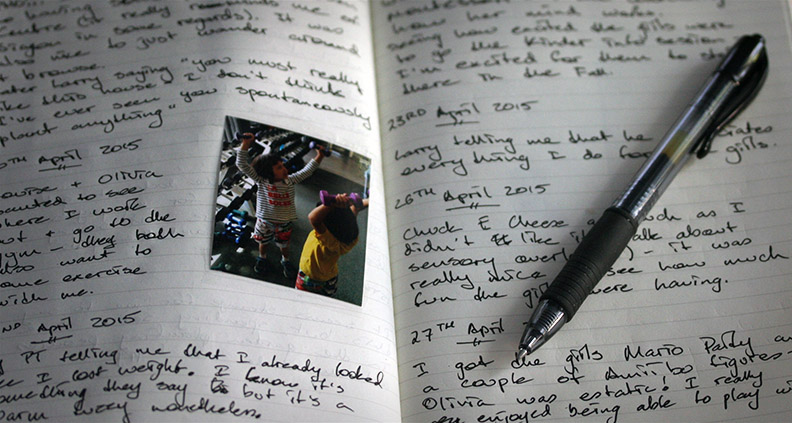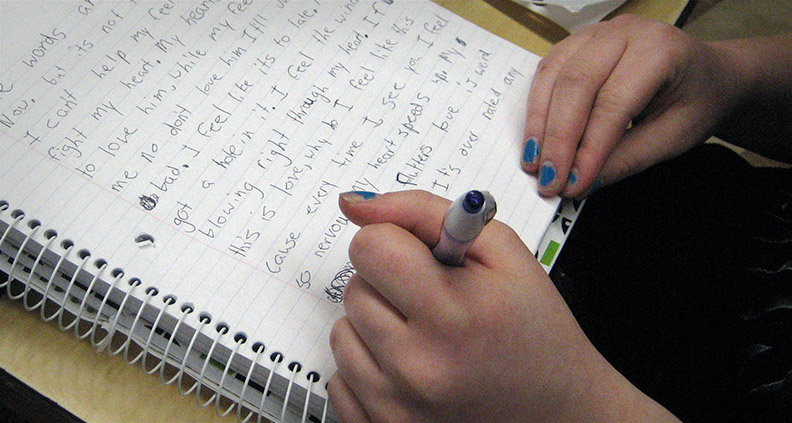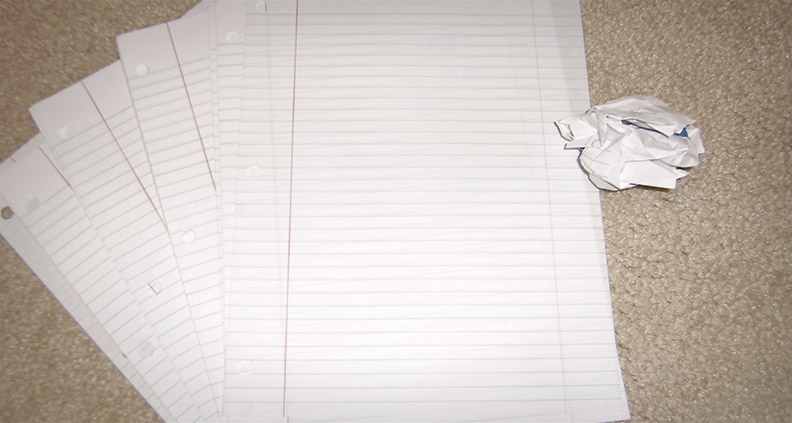This is How We Do It: Wake Up and Start Making Stuff ASAP with ‘Morning Pages’
Each month in This Is How We Do It, writer Cortney Matz mines her own frustrations to explore issues of productivity, coming away with (more or less) helpful thoughts on finishing that pesky screenplay, short film, or whatever else may be vexing the artistic mind. Warning: this is not an advice column.
***
Writing, writing. Trying to write and not think. Just write what I’m thinking. I’m not thinking anything. I’m just so tired and overwhelmed with too much to do and no time. But here I am, writing these stupid pages.” –excerpt from the author’s actual Morning Pages
According to Julia Cameron, author of the bestselling book The Artist’s Way, the concept of “Morning Pages”—theoretically, the practice of getting out three pages of longhand prose each and every day immediately upon waking up—is a seemingly pointless but nonetheless vital tool for unlocking creativity. And who’s not on board with that?
Others of us have tried and failed to find the benefit in this discipline. Waking up early? Writing three pages? By hand? What about this is supposed to be helpful?
Let’s ask the lady herself: author, screenwriter, director, playwright and all-around creative-person extraordinaire. Here’s what Julia Cameron has to say about Morning Pages:
When people ask, “Why do we write morning pages?” I joke, “To get to the other side.” They think I am kidding, but I’m not. Morning pages do get us to the other side: the other side of our fear, of our negativity, of our moods.
That’s what the practice of Morning Pages does: it allows your brain to sort out the foggy bits of thought, emotion and intention crowding your brain, literally relocating the sort of mental clutter you may not even notice exists onto the page in order to discover what’s lurking underneath. Sometimes it smells. Sometimes it shines.
Doesn’t that sound like fun?

Without internal exploration it’s difficult to be effective in any creative pursuit, or to be satisfied with the work you’re making even as you have the opportunity to make it. The Muse is not a logical mistress. But unfortunately when we’re unhappy in the Muse-Creative relationship the problem, frequently, is with us.
I had a few false starts getting into Morning Pages. It took too long. I couldn’t think of anything to write, and after a lifetime of exposure to self-help schemes, I’m very skeptical of any practice that requires waking up earlier than I already do (see previous ravings about sleep).
But now I’m hooked. I don’t do them at the same time every day, or even necessarily in the morning, but I find them to be a necessary tool to get over my internal obstacles and allow me to access my favorite parts of myself.
Maybe some of what I’ve learned will help make Morning Pages work for you. Here are some common frustrations I heard expressed (or had myself) with Julia’s dogmatic template. Just pick your favorite hurdle and try challenging it with these workarounds:
WRITING BY HAND

I like writing by hand. If you don’t, then don’t.
- Try typing. USE com to track your pages every day, or write yourself an email. Avoid the internet altogether and use a Word .doc.
- Try talking. Most smart phones come equipped with a simple voice recorder that you can chitchat your thoughts and feelings into. But if not, a quick search on the app store will get you a free one. And if worse comes to worse, there’s always a good ol’ cassette recorder.
FIGURING OUT WHAT TO WRITE

Pages are not journal entries. You don’t need to try to think of what to write. Literally write what you are thinking right now (see my excerpt at the top).
Still, it’s definitely easier said than done. Here are some tricks to get around your logical brain:
- Try playing music. Some days I start by writing the lyrics of whatever song is on Pandora right now.
- Try describing what you see. What does the wall look like? The page? The pen? Your fingernails? The end of your nose?
- Try scribbling. Just keep the pen going, fill up the space. Who says this has to be legible?
Throw out everything you know about sentence structure, because this is not writing. This is unblocking.
THE THREE-PAGE RULE

Julia insists there’s something magical about three pages. But if three pages are standing between you and a free mind, then to heck with magic. Let’s get practical.
- Try setting a timer. I’ve done as little as three minutes and found it beneficial.
- Try one page. That’s what I do.
- Try a tiny notebook. Three tiny pages are better than none.
DOING IT IN THE MORNING

I think this is self-explanatory.
- Try writing at lunchtime. If you have a regular schedule, writing at mealtimes or bedtime can be preferable to adding one more task in the morning.
- Try writing as needed. Pages can really help focus scattered brain cells when transitioning between tasks or trying to get psyched for other disciplines.
Above all, don’t punish yourself for missing days. This practice is all about self-care. We are busy filmmakers who expect a lot of ourselves. It’s only fair to take a little time for our interior landscape. So! Let’s pull on those gardening gloves and dig in.
What has been your experience with Morning Pages? Leave a comment; I’d love to know!
To learn more about Film Independent, subscribe to our YouTube channel or follow us on Twitter and Facebook. To learn how to become a Member of Film Independent, just click here.
